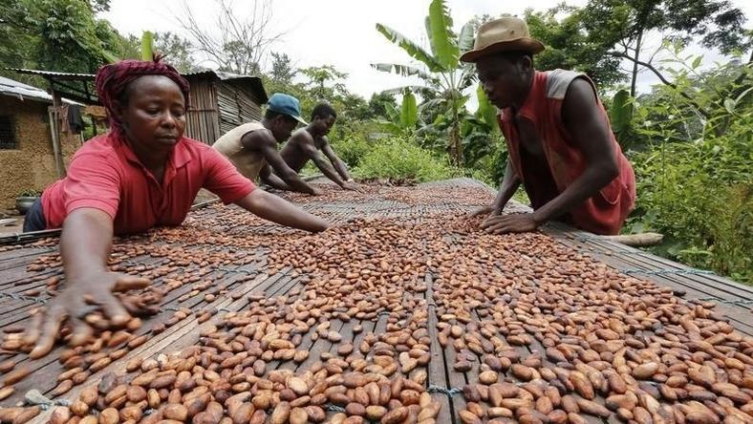The first tranche of the cocoa loan syndication has hit Bank of Ghana’s accounts. JoyBusiness understands that the Central Bank received about $650 million on October 20, 2020.
This should mean that the remaining 650 million cedis will come from November 2021.
This should mean that before the end of this year about 1.3 billion dollars should hit Bank of Ghana’s account. COCOBOD is looking at using a significant part of these funds to finance the purchases of cocoa beans for the next crop season.
COCOBOD is targeting 900,000 metric tonnes for next crop season.
Impact of the transfer
The immediate impact of this transfer will be the provision of required funds to aid purchases of cocoa beans for the next crop season.
COCOBOD, earlier this year, announced that it will begin the purchase of the cocoa beans for the next crop season, starting from October 2020.
COCOCBOD is also planning to use part of the funds for other critical projects that the board is planning to under from now to next year.
The Cocoa Syndication and the Ghana Cedi
The cedi's stability will be another area that will benefit greatly from the cedis. This is because the funds will first sit in the “foreign accounts” of the Bank of Ghana and will send signals to investors and traders that the Bank Ghana is in a strong position to support the cedi.
This will now increase the Bank of Ghana’s total international reserves to a little over $9 billion ending October.
The Governor Of the Bank of Ghana had noted that they are planning to increase the international by $1 billion before the end of this year, for some an indication of building reserves for a possible pressure on in the first quarter of next year.
The local currency has witnessed some marginal pressure on the interbank market over the past few days.
The cocoa loan syndication
COCOBOD last month signed a $1.3 billion syndicated loan agreement with local and international banks for the purchase of cocoa for the 2020/21 season. This was after Parliament in August approved the syndicated loan, which comes with an interest rate of 1.75 percent.
It was the first time that the agreement had to be signed virtually with the 24 international banks and four local ones because of the coronavirus pandemic.
The International banks include Amro Bank, Bank of China Limited in London, Standard Chartered Bank, Industrial, and Commercial Bank of China and Ghana International Bank, Cooperative Rabobank, UA, and Societe General.
The local banks are Ecobank Ghana Limited, Societe Generale Ghana Limited, Absa Ghana Limited and Stanbic Bank Ghana Limited.
Latest Stories
-
DAMC, Free Food Company, to distribute 10,000 packs of food to street kids
43 minutes -
Kwame Boafo Akuffo: Court ruling on re-collation flawed
1 hour -
Samuel Yaw Adusei: The strategist behind NDC’s electoral security in Ashanti region
1 hour -
I’m confident posterity will judge my performance well – Akufo-Addo
1 hour -
Syria’s minorities seek security as country charts new future
2 hours -
Prof. Nana Aba Appiah Amfo re-appointed as Vice-Chancellor of the University of Ghana
2 hours -
German police probe market attack security and warnings
2 hours -
Grief and anger in Magdeburg after Christmas market attack
2 hours -
Baltasar Coin becomes first Ghanaian meme coin to hit DEX Screener at $100K market cap
3 hours -
EC blames re-collation of disputed results on widespread lawlessness by party supporters
3 hours -
Top 20 Ghanaian songs released in 2024
4 hours -
Beating Messi’s Inter Miami to MLS Cup feels amazing – Joseph Paintsil
4 hours -
NDC administration will reverse all ‘last-minute’ gov’t employee promotions – Asiedu Nketiah
4 hours -
Kudus sights ‘authority and kingship’ for elephant stool celebration
4 hours -
We’ll embrace cutting-edge technologies to address emerging healthcare needs – Prof. Antwi-Kusi
4 hours

